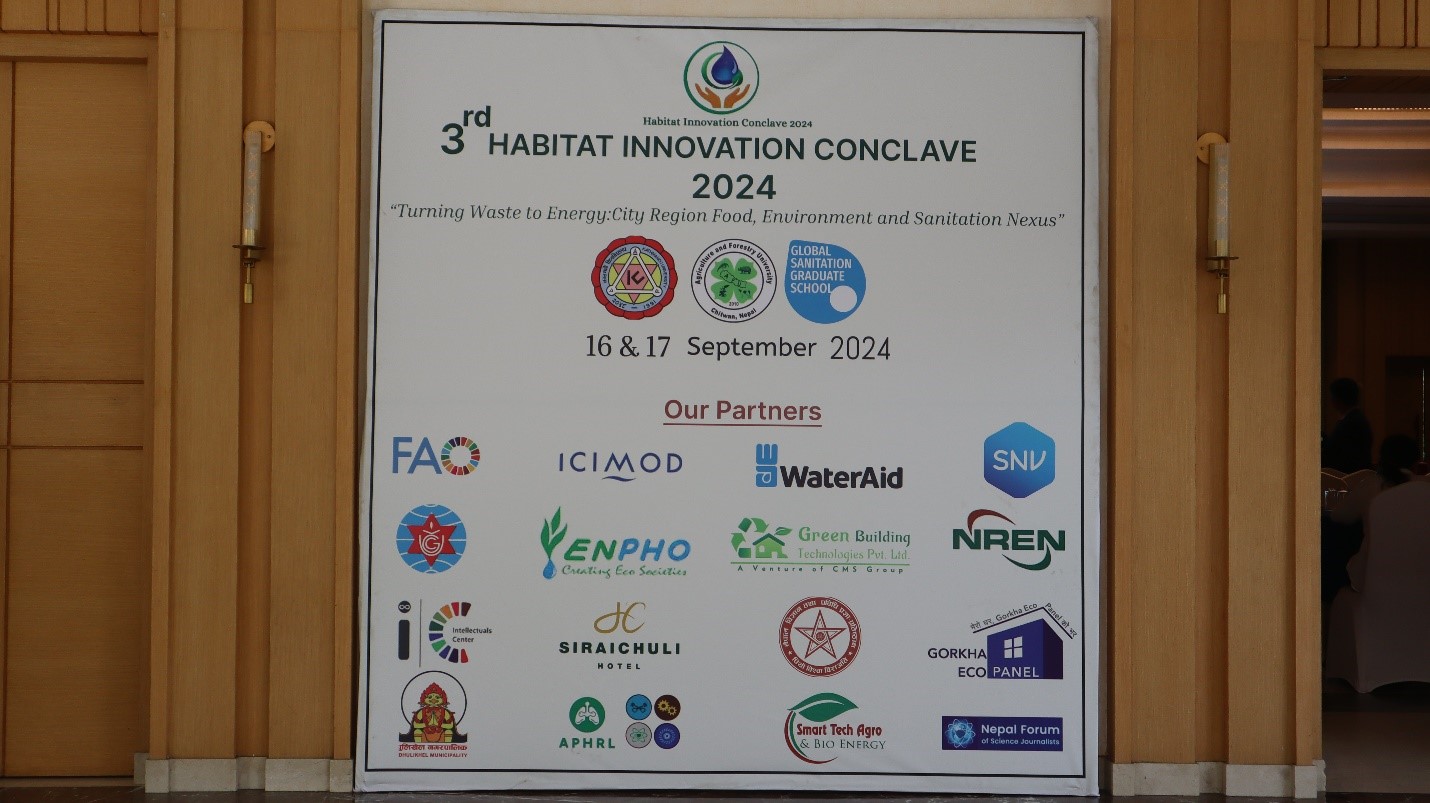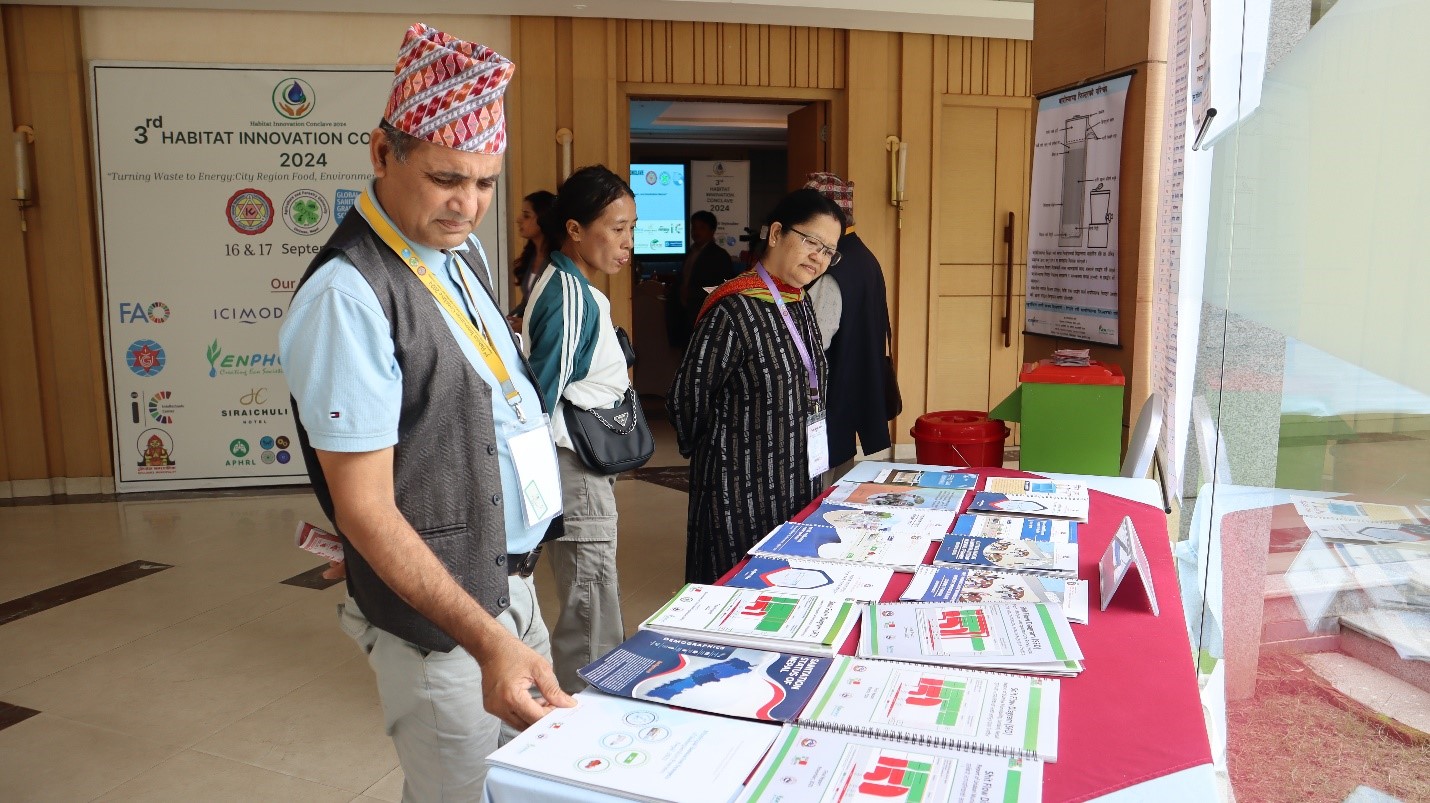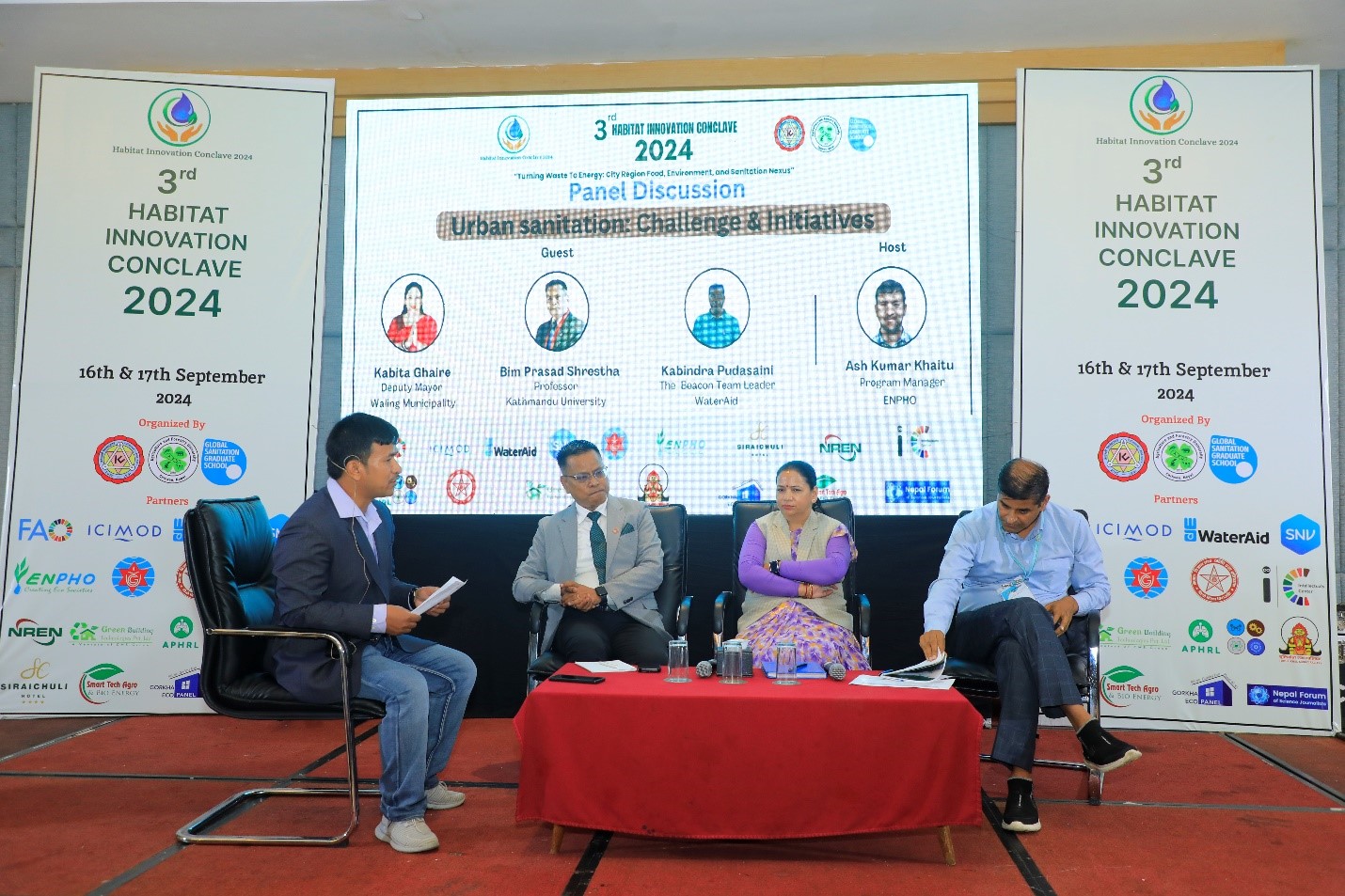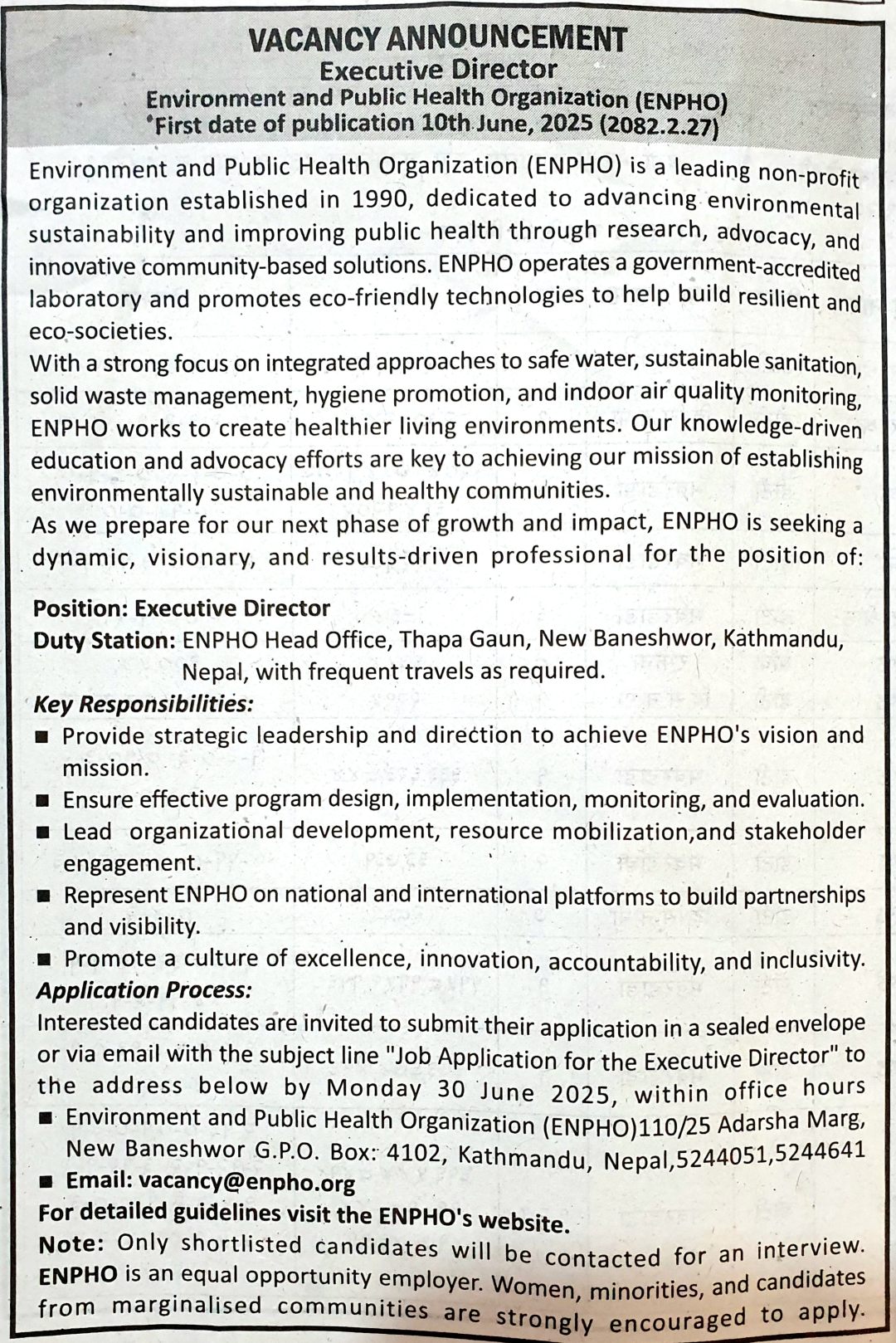The 3rd edition of the Habitat Innovation Conclave (HIC) 2024, jointly organized by the Global Sanitation Graduate School (GSGS) at Kathmandu University and the Directorate of Research and Extension (DoREX) at Agriculture and Forestry University, took place on September 16-17, 2024, in Chitwan, Nepal. This year’s theme, “Turning Waste to Energy: City Region Food, Environment, and Sanitation Nexus,” aimed to bring together diverse stakeholders to address key challenges in waste management, food security, sanitation technologies, and environmental sustainability.

3rd Habitat Innovation Conclave 2024
The event kicked off with an inaugural ceremony followed by a series of keynote speeches, panel discussions, and technical sessions. Experts, policymakers, government representatives, and students were engaged in discussions and knowledge exchange, focusing on innovative solutions to sanitation and environmental challenges. Among the many engaging activities, technical sessions featured paper and poster presentations, while deputy mayors participated in discussions on promoting sustainable sanitation practices. Master’s and PhD students in sanitation also had the opportunity to present their research and explore entrepreneurial opportunities.
As a supporting partner, the Environment and Public Health Organization (ENPHO) set up an exhibition stall displaying a variety of Information, Education, and Communication (IEC) materials, including training manuals, research papers, brochures, infographics, and video presentations. These resources aimed to raise awareness about current sanitation practices and promote innovative sanitation technologies, serving as advocacy tools for sustainable sanitation and environmental preservation. The exhibition attracted a significant audience, offering valuable insights and resources that emphasized ENPHO’s commitment to advancing sanitation solutions that protect both public health and the environment.

Exhibition stall by ENPHO
One of the key highlights of the Conclave was the insightful panel discussion hosted by ENPHO on the theme, “Urban Sanitation: Challenges and Initiatives.” The session brought together experts from academia, development agencies, and local government, including Prof. Bim Prasad Shrestha from Kathmandu University, Kabindra Pudasaini, Beacon Team Leader at WaterAid, and Kabita Ghaire, Deputy Mayor of Waling Municipality. Moderated by Mr. Ash Kumar Khaitu, Program Manager at ENPHO, the discussion focused on how academic institutions, development organizations, and government bodies can collaborate to address urban sanitation challenges and implement sustainable solutions.
The discussion highlighted the vital contributions of various sectors in improving urban sanitation. Academic institutions recognized their role in research and capacity-building, while development agencies offered technical expertise and resources. Governments, on the other hand, could play a key part in policy-making, regulation, and community outreach. Experts also detailed plans to enhance sanitation infrastructure, advance faecal sludge management, and promote hygiene education, all aiming at creating healthier cities through integrated sanitation strategies.
During the panel discussion, Deputy Mayor Kabita Ghaire also shared the journey of Waling Municipality in terms of sanitation transformation. She addressed key challenges, including limited sanitation infrastructure and financial constraints and explained how the municipality overcame them by adopting innovative strategies and partnering with organizations like ENPHO for technical support. As a result, Waling has developed sustainable, replicable sanitation models that other municipalities can emulate. Now serving as a mentor city, Waling proudly showcases its achievements and invites participants to visit and learn from its successful urban sanitation initiatives.

Panel discussion with the experts
The 3rd Habitat Innovation Conclave 2024 provided a dynamic platform for fostering collaboration among academics, government bodies, NGOs, and the private sectors, all working towards advancing sanitation practices and environmental sustainability in Nepal.






